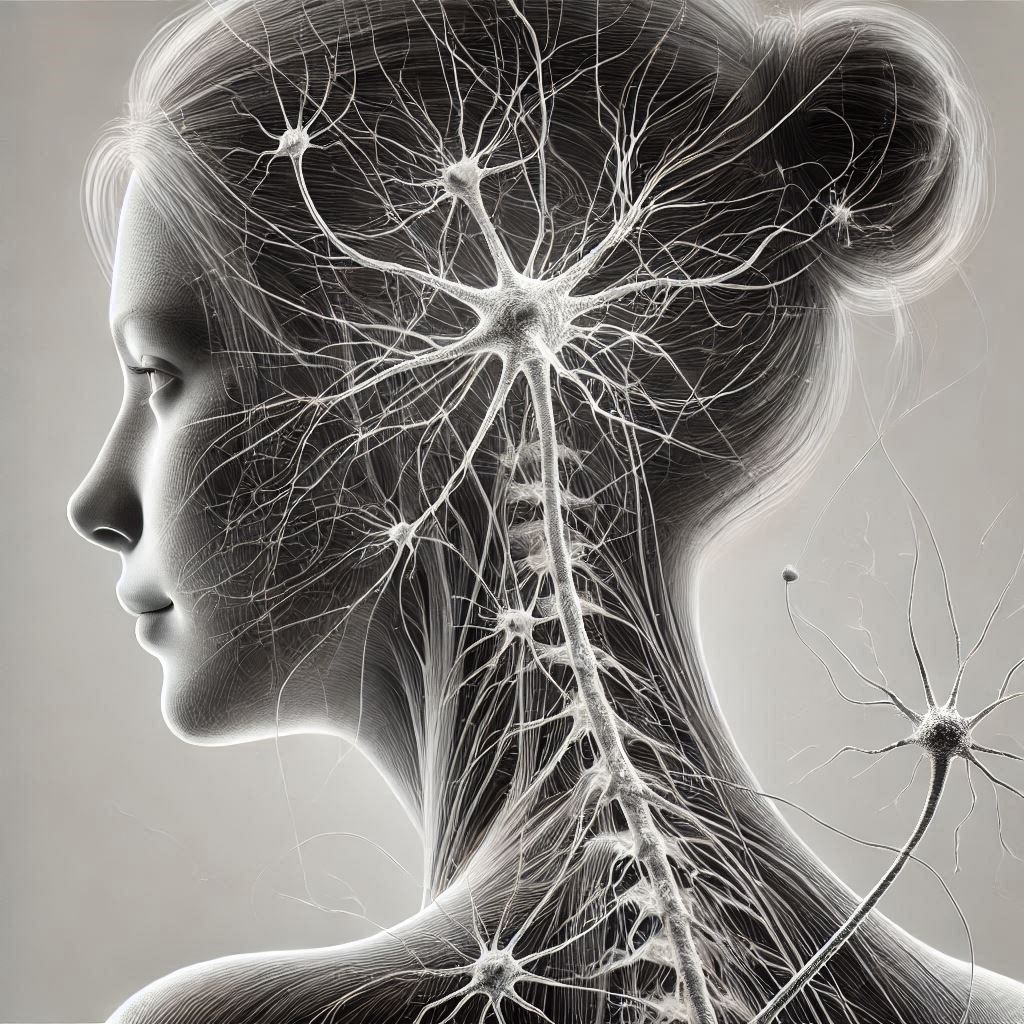Ever wondered if your body’s alarm, like a panic attack, could be trying to help you? Though it might feel terrifying, understanding that these intense moments are often your body’s way of signaling overload can be enlightening. Panic attacks bring a heightened state of awareness, and if approached correctly, they can guide you towards identifying and addressing underlying stressors or fears. Let’s explore how recognizing these signals early can do more than just scare you—they can serve as a pivotal step in managing stress more effectively, offering a surprising edge in your journey to better mental health.
Understanding Panic Attacks
Panic attacks can be overwhelming and frightening experiences, but it’s essential to remember that they are your body’s way of reacting to perceived threats. Understanding what a panic attack entails, the physical and psychological symptoms it presents, and the common triggers can provide valuable insights into managing and coping with these episodes effectively.
What is a Panic Attack
A panic attack is a sudden surge of intense fear or discomfort that reaches its peak within minutes. It can be a terrifying experience, often accompanied by physical symptoms like a rapid heart rate, sweating, trembling, and feelings of impending doom. Despite not being in real danger, the body responds as if it were facing a life-threatening situation, leading to a range of distressing sensations.
Physical and Psychological Symptoms
During a panic attack, individuals may experience a variety of physical and psychological symptoms. These can include a sense of imminent danger, fear of losing control or dying, rapid heartbeat, sweating, trembling, shortness of breath, chest pain, nausea, dizziness, and feelings of detachment from reality. The combination of these symptoms can be intense and overwhelming, contributing to the overall distress during a panic attack.
Typical Triggers
Panic attacks can be triggered by various factors, and these triggers can vary from person to person. Common triggers include stressful life events, significant life changes, certain phobias, excessive worry or anxiety, underlying health conditions, caffeine or stimulants, and a family history of panic disorders. Identifying personal triggers can help individuals anticipate and better manage panic attacks by implementing appropriate coping mechanisms and seeking professional support when needed.
By recognizing the signs and symptoms of panic attacks, understanding their underlying causes, and learning to navigate potential triggers, individuals can empower themselves to deal with these challenging experiences more effectively and work towards managing their anxiety in a healthier manner.
The Purpose of Panic Attacks
Panic attacks, often misunderstood, are the body’s way of responding to perceived threats. Understanding their purpose sheds light on the evolutionary, protective, and awareness-enhancing aspects of these intense episodes.
Evolutionary Perspective
From an evolutionary standpoint, anxiety and panic responses have been crucial for human survival. They originated as adaptive mechanisms to alert individuals to danger and prepare them for fight or flight responses. The heightened alertness during panic attacks can be traced back to our ancestors’ need to swiftly react to threats in their environment. Research suggests that panic, viewed ethologically, is not necessarily pathological but rather an adaptation that facilitated escape in perilous situations (Evolutionary aspects of anxiety disorders – PMC).
Protective Mechanism
Panic attacks act as a protective mechanism by activating the body’s stress response to cope with perceived threats. These episodes trigger physiological changes, such as increased heart rate and hyperventilation, to prepare the individual for potential danger. Defense mechanisms like denial and disavowal may come into play as the body instinctively tries to shield itself from perceived harm (An empirical study of defense mechanisms in panic disorder).
Heightened Awareness and Sensitivity
During panic attacks, individuals experience a heightened sense of awareness and sensitivity. This intense state of hypervigilance, driven by fear or anxiety, can impact one’s ability to function normally. Understanding and managing anxiety sensitivity is crucial in addressing the physical and emotional symptoms associated with heightened arousal (Understanding and managing anxiety sensitivity during…). This hyper-alert state can strain relationships and hinder daily activities, emphasizing the complex nature of panic attacks.
In conclusion, recognizing the evolutionary, protective, and sensitivity-enhancing roles of panic attacks can help individuals navigate these episodes with a deeper understanding of their body’s responses. By acknowledging the purpose behind panic attacks, one can begin to develop strategies to manage and cope with these challenging experiences effectively.
Benefits of Panic Attacks
Panic attacks, despite their overwhelming nature, can surprisingly offer benefits that are often overlooked. Understanding the positive aspects of panic attacks can provide a new perspective on these challenging experiences.
Increased Preparedness
Experiencing panic attacks can enhance your readiness for unexpected situations. Just like having an emergency kit prepares you for unforeseen events, going through panic attacks can equip you with a heightened sense of awareness. This increased preparedness can help you navigate stressors more effectively and respond promptly to challenges. According to 10 Benefits of an Emergency Preparedness Plan, being prepared minimizes panic, optimizes resources, and fosters a sense of safety and resilience.
Motivation and Action
Panic attacks, in moderation, can serve as a motivator for taking necessary actions in various aspects of life. While excessive anxiety may lead to paralysis, manageable levels of anxiety can ignite a sense of urgency and propel you towards addressing obstacles. As highlighted in The Vital Importance and Benefits of Motivation, motivation plays a crucial role in initiating behavioral changes, setting goals, and fostering personal growth. Understanding how panic attacks can spur motivation may help channel their energy towards positive outcomes.
Improved Performance and Focus
Contrary to common belief, experiencing anxiety during panic attacks can actually enhance performance and sharpen focus in certain situations. Anxiety, when harnessed effectively, can stimulate cognitive processes and heighten concentration levels. Research mentioned in The Top 5 Benefits of Focus in All Aspects of Life indicates that improved focus leads to greater efficiency and productivity, benefiting work performance and overall cognitive abilities. Embracing the potential for improved focus amid panic attacks can lead to better outcomes and increased mental acuity.
Understanding the benefits of panic attacks, such as increased preparedness, motivation and action, and improved performance and focus, can help individuals reframe their experiences and harness the positive aspects of these challenging moments.
Embracing and Managing Panic Attacks
Panic attacks can be overwhelming, but it’s important to remember that they are not a sign of weakness. Embracing and understanding panic attacks can lead to better management strategies for coping with them effectively.
Acceptance and Mindfulness
Acceptance and mindfulness play a crucial role in managing panic attacks. Mindfulness practices, such as meditation and deep breathing exercises, can help individuals become more aware of their thoughts and feelings during a panic attack. Research has shown that mindfulness meditation is an effective way to reduce anxiety by acknowledging and accepting the present moment. Practicing mindfulness changes how situations are perceived, leading to reduced anxiety levels over time. Meditation can make individuals feel more relaxed, less stressed, and more self-aware, all of which are beneficial for managing panic attacks.
Seeking Professional Help
Seeking professional help is a pivotal step in managing panic attacks. Psychotherapy, also known as talk therapy, is considered an effective treatment for panic attacks and panic disorder. It provides a safe space to explore and address the root causes of anxiety. It’s essential to recognize the signs that professional help may be needed, as therapy can offer valuable tools and coping mechanisms to deal with panic attacks effectively. Consulting with a psychologist, psychiatrist, or clinical social worker with experience in anxiety disorders can provide the necessary support and guidance.
Coping Strategies and Techniques
Developing coping strategies and techniques is essential in handling panic attacks. When experiencing a panic attack, recognizing that it will pass is important. Taking deep breaths, finding a peaceful environment, and focusing on an object can help calm the mind and body during an episode. Challenging negative thoughts and using relaxation techniques like calm breathing can mitigate physical symptoms associated with panic attacks. Building a personalized toolbox of coping mechanisms, such as reciting affirmations or practicing muscle relaxation, empowers individuals to face panic attacks with resilience and strength.
By embracing acceptance and mindfulness, seeking professional help, and adopting coping strategies and techniques, individuals can navigate and manage panic attacks effectively. Remember, you are not alone in this journey, and there are resources and support available to help you through challenging times.
Understanding Your Panic Attack
Panic attacks might seem overwhelming, but it’s essential to recognize that they are not your enemy. In fact, your panic attack could be your body’s way of alerting you to deeper emotional or psychological issues that need attention. Let’s delve into why your panic attack is actually trying to help you.
Acknowledging Inner Turmoil
When a panic attack strikes, it’s like a signal from within that something isn’t right. Instead of viewing it as a purely negative experience, consider it a messenger trying to communicate an underlying conflict or stress in your life. By acknowledging this inner turmoil, you can start the journey towards healing and self-awareness.
Heightened Awareness
During a panic attack, your senses are heightened, and your body goes into a state of hyperarousal. This intense awareness can be alarming, but it also presents an opportunity to delve into your emotions and thoughts more deeply. Embrace this heightened awareness as a chance to address unresolved issues or triggers causing distress.
Trigger Identification
Panic attacks often have triggers, whether they stem from past traumas, current stressors, or underlying anxiety. Understanding and identifying these triggers is crucial in managing and coping with future episodes. By recognizing what sets off your panic attacks, you empower yourself to take proactive steps towards prevention and emotional well-being.
Self-Reflection and Growth
Rather than viewing panic attacks as obstacles, consider them as catalysts for self-reflection and personal growth. Each panic attack can serve as a lesson in understanding your inner self better, learning coping mechanisms, and building resilience. Embrace the opportunity for self-improvement that arises from these challenging experiences.
Seeking Support and Guidance
Navigating panic attacks can be overwhelming, but you don’t have to face them alone. Seeking support from mental health professionals, therapists, or support groups can offer valuable insights and coping strategies. Embrace the guidance and assistance available to you as you navigate through the complexities of panic attacks.
Embracing Empathy and Understanding
Remember, experiencing panic attacks doesn’t define your strength or worth. Approach yourself with empathy, compassion, and understanding during these challenging moments. Embracing self-care practices, mindfulness, and positive affirmations can help you cultivate a nurturing relationship with yourself.
By reframing your perspective on panic attacks and viewing them as messengers rather than adversaries, you can embark on a journey of self-discovery, healing, and personal growth. Listen to what your panic attack is trying to communicate and use it as a stepping stone towards a deeper understanding of yourself and your emotional well-being.








